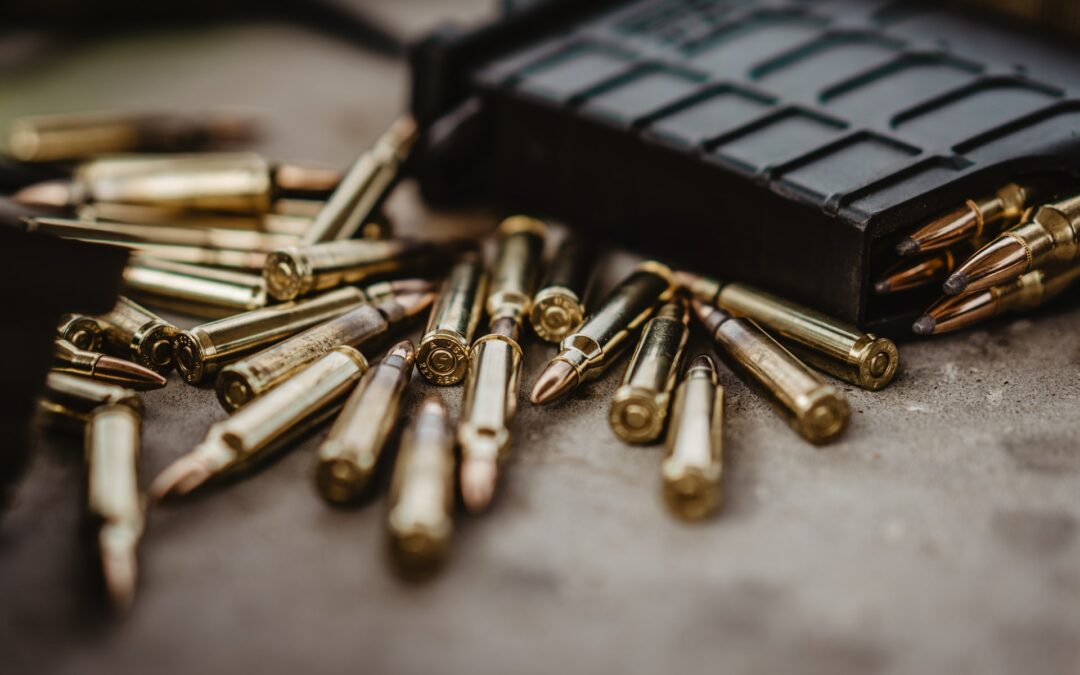Ammunition is an essential component of firearms, and it is crucial to know its shelf life to ensure that it functions correctly when needed. The shelf life of ammunition can be affected by various factors, such as storage conditions, type of ammunition, and environmental factors.
In this article, we will discuss how long ammunition’s shelf life is, what factors can impact it, and where to find reloading supplies.
What Is the Shelf Life of Ammunition?
The shelf life of ammunition can vary depending on several factors, including the type of ammunition, storage conditions, and environmental factors. Manufacturers recommend storing ammunition in a cool, dry place and away from direct sunlight, moisture, and heat. The shelf life of ammunition can be increased with proper storing, which guarantees that it will perform as intended in an emergency.
Depending on the type of ammunition and storage circumstances, the shelf life of ammunition can vary from a few years to several decades. For example, some types of ammunition, such as shotgun shells, may have a shorter shelf life than others due to their construction and materials. In contrast, centerfire rifle ammunition can last several decades if stored correctly.
Factors Impacting Shelf Life of Ammunition
a. Storage Conditions
One of the key elements that can affect the shelf life of ammunition is storage circumstances. Ammunition should be kept out of direct sunlight, moisture, and heat in a cold, dry location. Exposure to moisture and heat can cause the reloading supplies powder to deteriorate, which can affect the performance of the ammunition. Additionally, exposure to direct sunlight can cause the ammunition to degrade and become unstable.
b. Type of Ammunition
The type of ammunition can also impact its shelf life. Due to their design and composition, some ammunition, such as shotgun shells, may have a reduced shelf life. In contrast, centerfire rifle ammunition can last several decades if stored correctly.
c. Environmental Factors
Environmental factors, such as humidity and temperature, can also impact the shelf life of ammunition. High humidity can cause the gunpowder to deteriorate, which can affect the performance of the ammunition. Similarly, exposure to extreme temperatures can cause the ammunition to become unstable and unsafe to use.
d. Manufacturer’s Recommendations
It is essential to follow the manufacturer’s recommendations for storing ammunition. Manufacturers often guide how to store ammunition to ensure it functions correctly when needed. Following these recommendations can help extend the shelf life of ammunition and ensure that it is safe to use.
How to Store Ammunition
Proper storage is essential for extending the shelf life of ammo. The following advice will help you keep ammunition properly:
a. Store Ammunition In A Cool, Dry Place
Ammunition storage should occur in a cool, dry area away from heat, dampness, and sunlight. The efficacy of the ammunition may be impacted by the gunpowder deteriorating due to exposure to moisture and heat.
b. Use Sealed Containers
Sealed containers can help prevent moisture and other environmental factors from affecting the ammunition. You can use plastic or metal containers with airtight seals to store ammunition.
c. Label Containers
Labeling containers can help you keep track of the type of ammunition and its age. You can use a permanent marker to label the containers with the date of purchase and the type of ammunition.
d. Store Ammunition Away From Firearms
It is essential to store ammunition away from firearms. This can help prevent accidental discharge and ensure the ammunition remains in good condition.
e. Follow the Manufacturer’s Recommendations
It is essential to store ammo according to the manufacturer’s instructions. Manufacturers frequently provide instructions on how to store ammunition so that it will be ready for use when required. By following these suggestions, ammunition’s storage life can be increased, and its safety during use is guaranteed.
Conclusion
Ammunition’s shelf life can differ based on many variables, including storage conditions, ammunition type, and environmental factors. The shelf life of reloading ammunition can be increased with proper storing, guaranteeing that it will perform as intended in an emergency.
Keeping ammunition according to the manufacturer’s instructions and in a cool, dry location away from intense sunlight, moisture, and heat is crucial. By adhering to these recommendations, you can ensure your ammo is secure to use when you need it.
RedEye Reloading offers reloading supplies at fair prices. We are located 40 min from Myrtle Beach at 7337 Hwy 9 Nichols, SC. Buy now!
